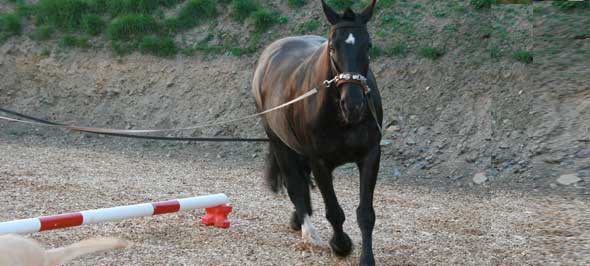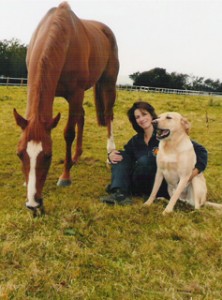Horses are asked to perform in many ways. Neck, back and muscular pain may result from even day to day activities. If any of the following apply to your horse, he might benefit from treatment by an experienced equine physio :
•Unexplained poor or reduced performance
•Napping, rearing, bucking or similar resistances
•Unexplained behavioural changes, unwillingness to co-operate
•Difficulty with canter leads, poor engagement, collection or extension
•Problems when jumping: refusals, knocking poles, short strides, jumping flat
•Appearing sensitive to grooming or cold backed on mounting
•Signs of stiffness or difficulty with lateral flexion (bending)
•Difficulty with shoeing or uneven shoe wear
•Unlevelness, especially behind
•Toe-dragging
These problems may be caused by (amongst other things):
•Poor fitting tack
•Becoming cast in the stable
•Poor foot balance
•Dental pain
•Conformation problems
•Imbalanced rider
•Repetitive training
•Slips and falls whilst turned out, in competition or general work
•Old injuries – even those which we think they have recovered from
Treatments for horses take place at the horse’s usual location. It is preferable for your horse to be clean and dry in readiness for treatment. Before treatment, Helen will undertake a full static assessment and dynamic gait analysis, and may need to see the horse ridden or lunged.
The treatment is only the beginning of the healing process and a careful aftercare programme will be devised which should be followed to gain maximum benefit from treatment.
Owners will be given a written report of the findings, therapy undertaken and aftercare recommendations, including “homework” exercises, to enable them to best support the treatment which has been given and continue the rehabilitative process. It may be necessary to follow up the initial treatment with one or two more sessions but generally Helen’s aim is to produce a long-term improvement in the horse which should result in only a 6-monthly or annual maintenance check-up being required.


